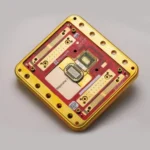The Japanese government is spearheading a new trilateral research initiative with the United States and South Korea, allocating ¥650 million ($4.33 million) to establish four joint projects in hydrogen technology and advanced computing starting next fiscal year, Nikkei reported.
The collaboration, which brings together ten research institutions including Sandia National Laboratories and the Korea Institute of Science and Technology, signals growing efforts by the three allies to maintain their technological edge while protecting sensitive innovations from potential adversaries.
Japanese Economic Security Minister Minoru Kiuchi is expected to formally announce the framework, which will prioritize development of hydrogen-absorbing alloys for more efficient transportation and storage of the clean fuel. The initiative also aims to advance catalyst technology for hydrogen production, leveraging artificial intelligence to reduce costs.
Beyond energy research, the partnership will focus on climate change prediction models specific to East Asia, incorporating PM2.5 monitoring data and advanced computing capabilities for earthquake forecasting.
The move builds on Japan’s 2022 economic security legislation, which identified technologies requiring protection from potential leaks to countries like China and Russia. It comes after recent high-level diplomatic engagement, including discussions between U.S. President Donald Trump and Japanese Prime Minister Shigeru Ishiba earlier this month.
U.S. Secretary of State Marco Rubio and his counterparts from Japan and South Korea reinforced this cooperation during weekend talks in Munich, emphasizing their commitment to joint development of emerging technologies.
The National Institute of Advanced Industrial Science and Technology will lead Japan’s participation in the research consortium, marking the first formal research cooperation framework among the three countries focused on securing critical technologies.



